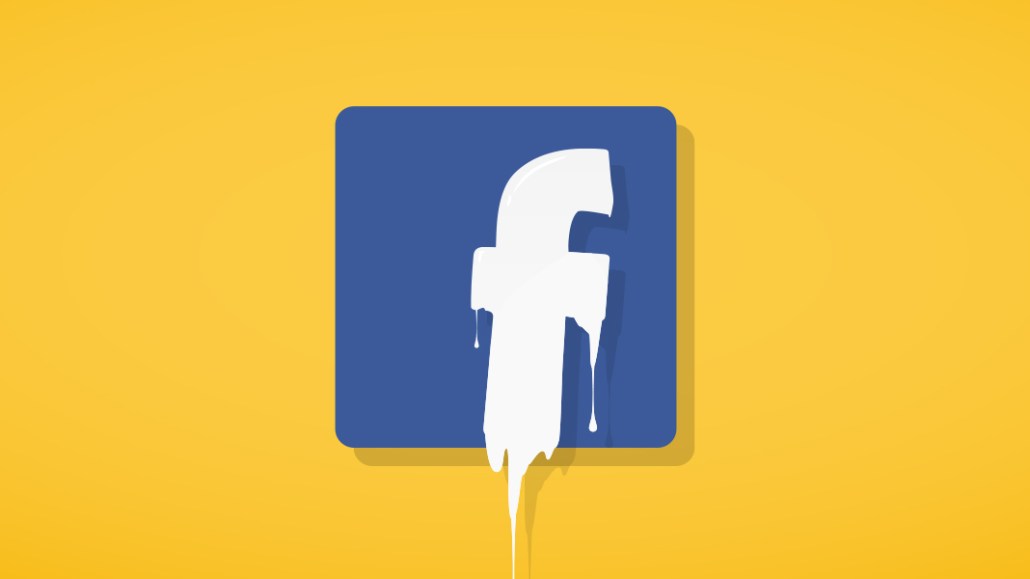Facebook’s proposed budgets for Watch news shows range from $1 million to $10 million

As Facebook looks to recruit news publishers for daily and weekly shows for Facebook Watch, the company is proposing a wide range of budgets depending on the type of programming.
For now, Facebook has committed to fund news programming for Watch for a year. Generally speaking, the company is proposing budgets that range from $5 million to $10 million annually for daily news programming; for weekly shows, Facebook is willing to pay around $1 million to $2 million, though those budgets are largely based on costs per episode rather than an annual fee, according to two news publishing execs who have been briefed by Facebook.
With the shows set to debut sometime this summer, the Facebook Watch news initiative is led by the platform’s head of news partnerships, Campbell Brown, who is armed with a $90 million budget aimed at shows that feature well-known news anchors and journalists, according to a recent report from The New York Times.
Facebook declined to comment on the record.
An array of digital and traditional news outlets, including BuzzFeed, CNN and Vox Media, have been pitching news shows for the section. The idea is to launch about a half-dozen shows, which will be paired with a breaking news section and a daily Facebook newscast that would feature news videos from multiple news publishers, according to the Times.
Initially, Facebook was interested in pitches for daily news programs, both sources said. This has proved to be a slight hurdle as it’s difficult to differentiate between the programs if they all end up being anchored and following the same general format. More recently, Facebook has been steering both digital and traditional publishers to pitch more weekly news show concepts.
“They are pivoting a lot of the people they wanted daily pitches from into weekly pitches at the lower price point,” said one of the sources. “I don’t think they want 10 publishers doing a morning newscast; everyone’s going to have to pick a lane.”
“They briefed us and said they wanted daily news show ideas from all of us,” said the second source. “Later, they came back and said they were interested in weekly stuff, which to me says they’re getting smarter about what they’re doing.”
During an F8 presentation last week from Alex Hardiman, Facebook’s head of news product said that news in Watch “will include a mix of daily briefings, weekly deep dives, and live coverage.”
Sources said they expect Facebook to partner with broadcasters such as CNN on daily and live news shows, as these companies have the infrastructure and resources to produce such programming.
Facebook’s efforts to bring news programming to Watch comes at a time when news publishers have grown incredibly skeptical about Facebook’s ability to help them make money from producing videos for Facebook. In the past, Facebook’s subsidies for live and on-demand news feed videos provided some revenue, only for Facebook to cut those programs after the annual deals ended.
Said one of the sources recently briefed by Facebook: “I do worry about getting distracted by a bright, shiny new object again while we are trying to continue grow our business on our own platform, on YouTube and other places that are more meaningful for us [from a revenue perspective] at the moment.”
Get more insight into the modernization of video and entertainment. Subscribe to Digiday’s weekly video briefing email for interviews, analysis, stats and much more.
More in Media

Digiday+ Research: Dow Jones, Business Insider and other publishers on AI-driven search
This report explores how publishers are navigating search as AI reshapes how people access information and how publishers monetize content.

In Graphic Detail: AI licensing deals, protection measures aren’t slowing web scraping
AI bots are increasingly mining publisher content, with new data showing publishers are losing the traffic battle even as demand grows.

In Graphic Detail: The scale of the challenge facing publishers, politicians eager to damage Google’s adland dominance
Last year was a blowout ad revenue year for Google, despite challenges from several quarters.








